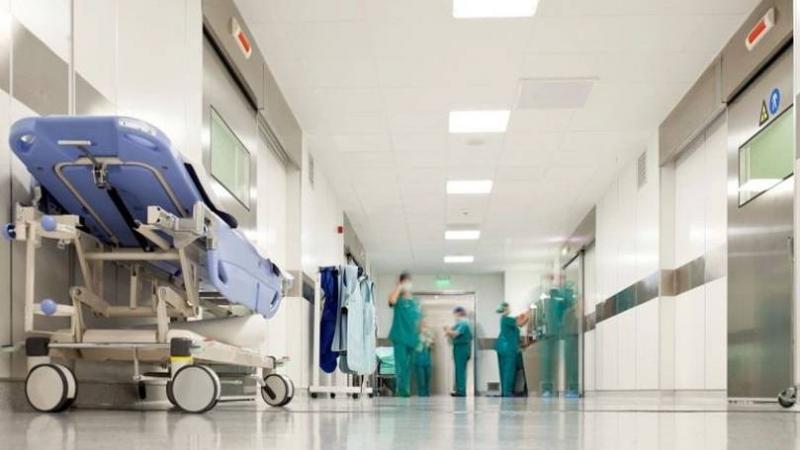There are multiple reasons leading the healthcare sector to the brink of collapse. From a shortage of medical equipment to the inability to maintain it, along with the interruption of essential medications and a salary crisis, the healthcare sector is losing its capacity to withstand pressures, putting patient health in jeopardy. The fear today, as the crisis expands, is that collapse could become a reality, with some hospitals resorting to extreme measures, including the possibility of closing down.
The healthcare sector is steadily moving toward breakdown. 120 private hospitals and 33 government hospitals lack the minimum components necessary to continue providing health services to patients. The current situation leads to uncertainty regarding the sustainability of this sector amid an endless-seeming crisis. This uncertainty has reflected in some hospitals' decisions to cut back on their departments and in a "decline in healthcare services to previously unheard of levels," according to the head of private hospitals in Lebanon, Sleiman Haroun. Haroun attributes this decline to two main problems: "The first is immediate and related to medical equipment breaking down and remaining in that state for months due to the high costs of repairs in dollars, while securing cash is increasingly difficult." The second problem, which is no less serious than the first according to Haroun, is that "hospitals are consuming their existing equipment and, given the economic difficulties, will not be able to replace it with new equipment in the future, meaning they will have to rely on their old equipment."
This has led to a decrease in the percentage of imports of these supplies, as noted by Salma Asy. The drop in consumption of this equipment is due to "hospitals no longer purchasing substantial amounts of equipment, and patients are also cutting back on their consumption due to their inability to bear medical costs." Furthermore, "the price is now paid in fresh dollars as it is no longer subsidized by the Central Bank of Lebanon, except for dialysis and heart disease supplies," according to Asy.
The situation in private hospitals is not different from that in government hospitals; however, the latter's situation regarding equipment and repairs appears somewhat better, says Hisham Fawwaz, head of the hospitals and dispensaries department at the Ministry of Health. He refuses to describe the situation in the sector as collapsed, preferring to say it is "facing significant challenges," which necessitate the ministry working to assist these hospitals. The first step in this assistance, according to Fawwaz, is enabling them to repair equipment as soon as it breaks down "by utilizing loans from the World Bank or grants that come their way." Moreover, these hospitals still benefit from using the equipment provided to them during the COVID-19 pandemic, funded by international organizations led by the World Bank, which includes intensive care units (beds, ventilators...).
In addition, Fawwaz revealed to "Al-Akhbar" that there is a loan of $30 million provided by the Islamic Bank to the ministry for purchasing medical equipment specifically for government hospitals, with implementation nearing its final stages set to benefit in the coming months. Fawwaz confirmed that the distribution of this equipment "will be done through a mechanism that ensures its essential availability across all governorates in a balanced and fair manner, avoiding forcing patients to travel long distances to undergo any medical tests."
While waiting for this to become a reality, the situation in hospitals remains unchanged, particularly concerning the shortage of equipment that affects most of these institutions, both public and private, which reflects on the condition of patients who move from one hospital to another to obtain medical services. In this context, Fawwaz considers the matter remains within normal limits, attributing the reason here to "the disparity in hospital equipment, as some do not include all types of equipment or medical departments or specialties."
### The Extended Crisis of Medications and Salaries
Not only the equipment burdens this sector; medications and fuels are also part of the crisis. In this regard, sources at one private hospital indicate that "there are still essential medicines unavailable, and the exorbitant costs incurred by the hospital to secure electricity hinder its ability to store the same quantities of medications previously stocked." Additionally, "the prices of some medications have surpassed the hospitals' ability to purchase them to avoid shortages, such as the example of a bottle of anesthetic that was 230,000 LBP and is now priced at 6 million LBP."
Another significant factor contributing to the decline in services is the reduction in the value of salaries, which has prompted many doctors, nurses, and workers in this sector to emigrate. The shortage in their numbers has led to "postponing appointments or surgical operations to other dates that align with the schedules of doctors and specialists," the sources add. In this context, Haroun explains that "the primary shortage today is in the number of doctors, particularly nephrologists, vascular surgeons, neurosurgeons, and infectious disease specialists, which forces doctors to work in multiple hospitals."




